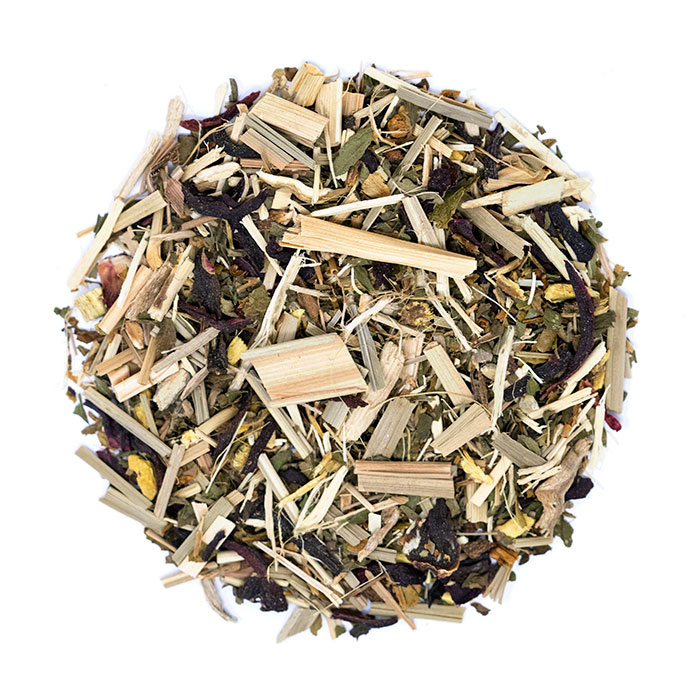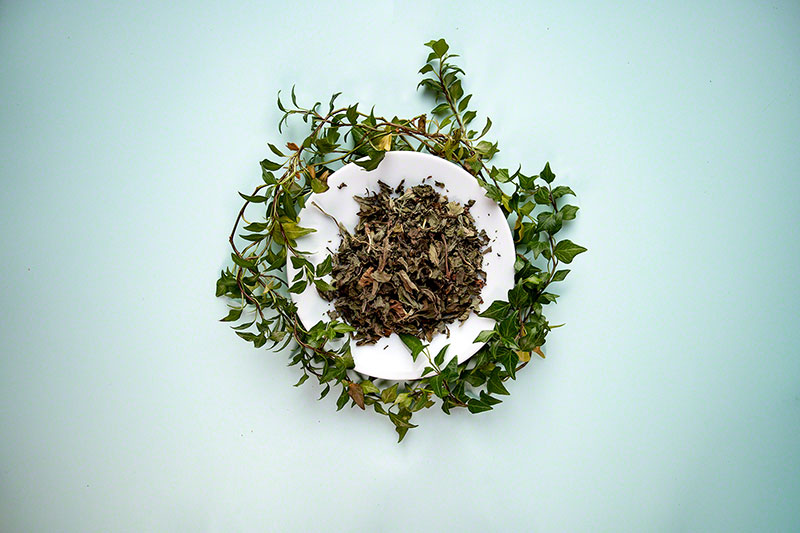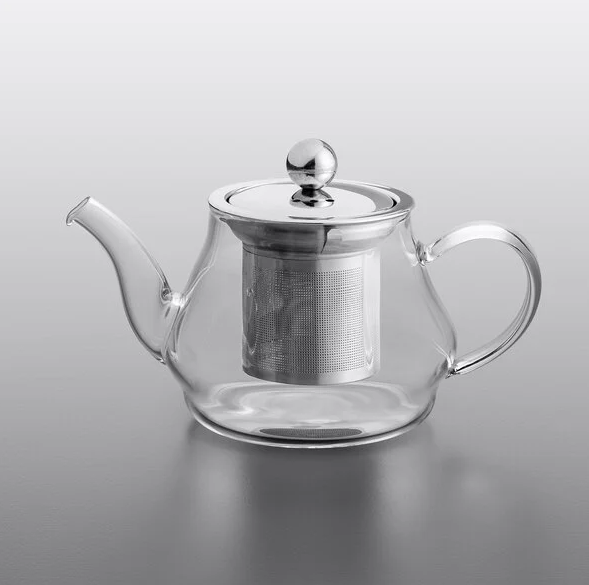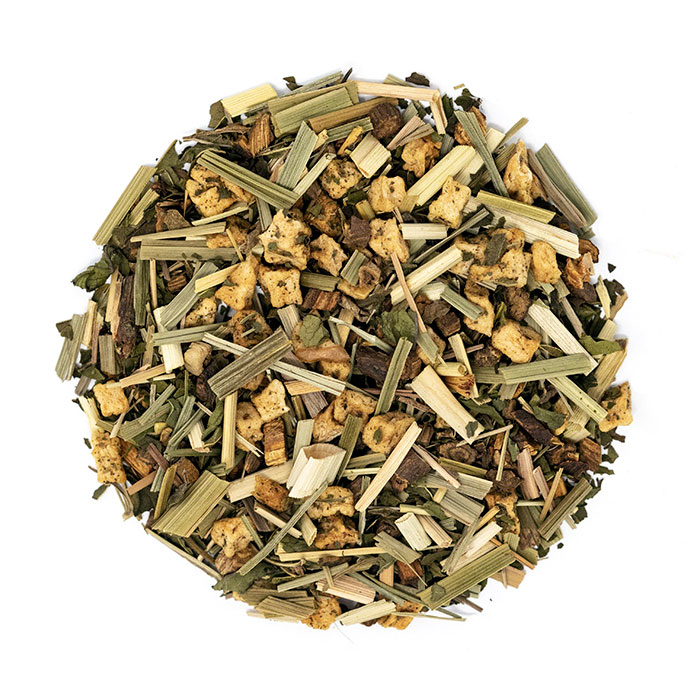20 Peppermint Tea Health Benefits: Tis the Season for Better Sleep!
Peppermint is loved by tea drinkers for its refreshing, delicious flavor. But, this tea is versatile, full of antioxidants, and may provide more than just a simple refreshment. Although mint has been used for centuries, peppermint is actually a new plant. It’s native to Europe where it was first cultivated in the late 17th century[1]. Today, it’s common across the world and available in almost every convenience store. Learn more about the amazing benefits of peppermint tea.
Peppermint Tea Health Benefits
Peppermint, Mentha piperita, is different from spearmint, Mentha spicata. Although they are both mints, they are different in their chemical composition and provide different benefits. What makes peppermint unique is menthol, compound almost absent from spearmint leaves.What is peppermint tea good for
(BONUS): Increasing alertness and enhancing mood
A study on 180 volunteers showed that drinking peppermint tea may have a positive effect on mood and increasing alertness[2]. Although it contains no caffeine, it may provide refreshment and give a morning energy boost.1. Relieving menstrual cramps
Peppermint tea may be effective in treating menstrual cramps and dysmenorrhea symptoms including nausea, diarrhea and intensity and duration of pain[3].2. Soothing skin
Menthol in peppermint may help soothe the skin and treat conditions such as dermatitis. A study that included 84 babies with candidal diaper dermatitis showed that topically applied menthol may be an effective alternative to regular treatments[4].
After Noon Delight tea with peppermint
3. Improving memory
Studies showed that peppermint may be able to enhance memory,[5] both long term and working memory[6].4. Aiding sleep
Peppermint is a muscle relaxant and may provide relaxation before bedtime. It may help reduce stress and anxiety and promote better and healthier sleep. As it contains no caffeine, it is likely suitable for most people.5. De-stressing
Studies showed that peppermint is good for de-stressing, reducing frustration, anxiety and fatigue[7]. International Journal of Neuroscience reports that it may even have a positive effect on self-confidence.[8]6. Weight-loss
Although rarely used on its own, this plant is often an ingredient in many weight loss blends. In order to support weight loss, peppermint may aid digestion and stimulate gastric and bile secretions and bowel motility.[9]7. Helping with bad breath
As a common ingredient in chewing gums, it may help to camouflage the bad breath. In fact, that’s one of the benefits that can be seen straight away. Peppermint has antibacterial properties that may help fight the bacteria causing bad breath.8. Natural decongestant
Mint tea may be used for boosting immune system and dealing with symptoms of a common cold. Menthol in peppermint may help “loosen and bring up mucus from the lungs”[10], therefore help you breathe more easily. Another research showed that menthol may help enhance the” nasal sensation of airflow.”[11]9. Reducing nausea
This herbal tea is considered likely safe during pregnancy. That’s why It’s often used for treating nausea and reducing vomiting, as a safer alternative to a regular medicine.10. Aiding digestion
German Commission E listed peppermint as an effective herb for aiding digestion[12]. Peppermint tea is one of the best teas for dealing with irritable bowel syndrome (ibs)[13].12. Cooling effect
Peppermint tea is the top choice for summer refreshment for a reason. Peppermint oil contains 50% of menthol, compared to less than 1% in spearmint[14], another popular mint. Menthol is responsible for a sharp, cooling effect[15] and is often used in toothpastes and chewing gums.
Dried mint tea
13. Relaxing muscles and calming the stomach
Peppermint may have an “antispasmodic action on the smooth muscle of the digestive tract.” [16] It has been used traditionally for treating different stomach problems.14. Relieving flatulence
With aiding digestion peppermint tea may help with relieving flatulence too[17]. It’s one and only tea often recommended as a first aid for helping with this problem.15. Chemo-preventive potential and anti-tumor activity
Studies on animals show a potential chemo-preventive potential of peppermint[18]. So far, studies suggested that peppermint is cytotoxic and may have a potential benefit in dealing with both cancer and tumor[19]. However, more research is needed to support these claims.16. Protecting liver
Because of the high antioxidant content, both peppermint oil and peppermint tea[20] may have a protective effect on the liver[21].17. Relieving pain
Some studies reported an analgesic effect of peppermint tea.[22] It may act as a local anesthetic.[23]18. Relieving headaches
Studies showed that peppermint might be as effective in treating headaches as regular medicine. Peppermint oil applied topically may help with migraines, digestive-related headaches[24] and tension headaches.19. Antiviral activity
Peppermint leaves may help fighting against viruses such as Herpes Simplex Virus, Influenza A and Newcastle disease virus.[25]20. Providing protection against fungi
One study tested peppermint on 12 different fungi. Results showed it has a moderate fungicidal activity on almost all of the tested samples, including Candida albicans[26].Peppermint Tea FAQ
Does peppermint tea have caffeine?
Unless blended with ingredients that contain caffeine, peppermint tea is caffeine free. However, it may still be the perfect choice for increasing the alertness without taking caffeinated drinks. Research says that peppermint may increase alertness and improve memory[27].Can you drink peppermint tea while pregnant?
American Pregnancy Association lists peppermint tea as likely safe during pregnancy. Peppermint is often used for relieving nausea and prevent vomiting, making it a possibly good herbal choice during pregnancy. However, keep in mind that there is no safe way to know which tea would benefit or harm. A cup of peppermint tea is likely to be safe, but avoid over-consuming even caffeine free herbal teas while pregnant.Does peppermint tea help with anxiety?
Peppermint tea may help improve mood and relieving mild stress. Although not commonly used as an anti-stress tea, studies showed that peppermint has relaxing and soothing properties that may help in dealing with anxiety. Peppermint essential oils can be used topically for treating tension headaches and side effects related to anxiety.Lemon Zest tea with peppermint
Where to get peppermint tea?
Peppermint tea has been widely available for centuries. In fact, it’s one of those teas you can grow by yourself and drink both fresh and dried. It’s available in most grocery stores and online tea shops. When buying peppermint tea, pay attention not to confuse it with spearmint. The later one will have a different flavor profile and benefits. For example, the famous Moroccan Mint tea is made with spearmint, rather than peppermint. However, peppermint may be added too, to enhance the flavor and give more sharpness. Peppermint is delicious on its own, and as an ingredient in tea blends. To make peppermint tea, bring water to a boil and steep one teaspoon of broken leaves or 1 spoon of unbroken leaves for 5-10 minutes. Check out our favorite blends with peppermint:Disclaimer: The purpose of this article is not to diagnose or treat any diseases, or to replace an opinion of a professional doctor. Never self-treat any diseases, or drink large quantities of tea, real or herbal, if you are suffering from serious diseases, are pregnant or breastfeeding. As every person is different, it’s impossible to make a general statement about the benefits or side-effects.
References
[1] https://www.encyclopedia.com/plants-and-animals/plants/plants/peppermint [2] https://www.northumbria.ac.uk/about-us/news-events/news/2016/04/herbs-that-can-boost-your-mood-and-memory/ [3] https://www.ncbi.nlm.nih.gov/pmc/articles/PMC4979258/ [4] https://www.mdedge.com/dermatology/article/78827/atopic-dermatitis/peppermint-and-menthol [5] https://www.researchgate.net/publication/5805480_Modulation_of_cognitive_performance_and_mood_by_aromas_of_peppermint_and_ylang-ylang [6] https://www.northumbria.ac.uk/about-us/news-events/news/2016/04/herbs-that-can-boost-your-mood-and-memory/ [7] https://www.canr.msu.edu/news/stressed_peppermint_can_help [8] International Journal of Neuroscience [9] https://www.ncbi.nlm.nih.gov/pmc/articles/PMC2927017/ [10] https://www.medicalnewstoday.com/articles/265214.php [11] https://www.ncbi.nlm.nih.gov/pubmed/16767798 [12] https://www.encyclopedia.com/plants-and-animals/plants/plants/peppermint [13] https://www.nhs.uk/news/medication/peppermint-does-soothe-ibs/ [14] https://www.rd.com/food/fun/difference-between-peppermint-and-spearmint/ [15] https://www.sciencedirect.com/topics/food-science/peppermint [16] http://cms.herbalgram.org/expandedE/Peppermintleaf.html?ts=1574302264&signature=55ea32dbd5712f0f8599db3ed8b7a9ba [17] https://www.nhs.uk/conditions/flatulence/ [18] https://www.sciencedirect.com/science/article/pii/S0570178315000469 [19] https://www.ncbi.nlm.nih.gov/pubmed/16767798 [20] https://www.ncbi.nlm.nih.gov/pubmed/16767798 [21] https://www.sciencedirect.com/science/article/pii/S0570178315000469 [22] https://www.ncbi.nlm.nih.gov/pubmed/16767798 [23] https://www.ncbi.nlm.nih.gov/pubmed/16767798 [24] https://www.encyclopedia.com/plants-and-animals/plants/plants/peppermint [25] https://www.ncbi.nlm.nih.gov/pubmed/16767798 [26] https://www.ncbi.nlm.nih.gov/pubmed/16767798 [27] https://www.ncbi.nlm.nih.gov/pubmed/18041606
More from:
SLL




Leave a comment